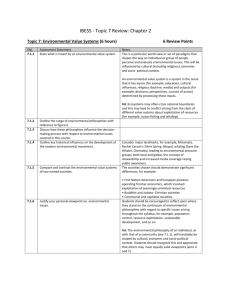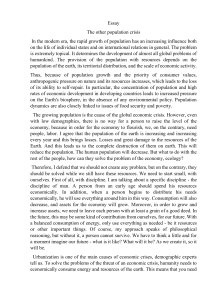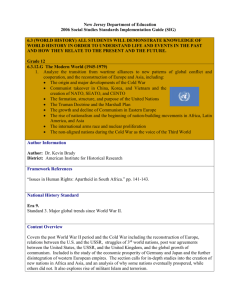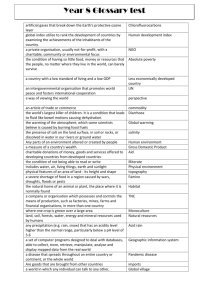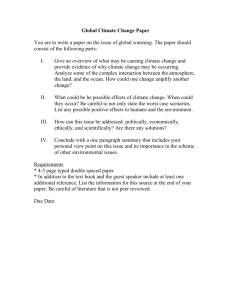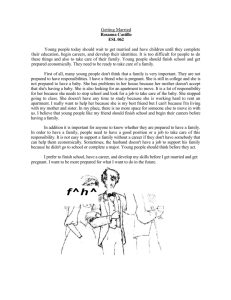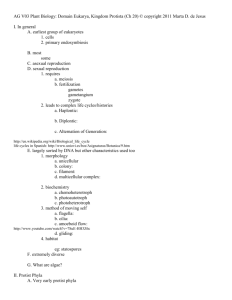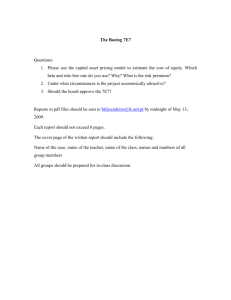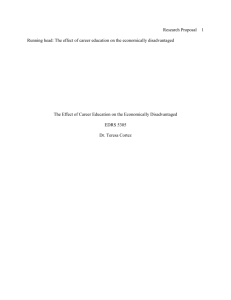Take-home Exam and MARK SCHEME
advertisement
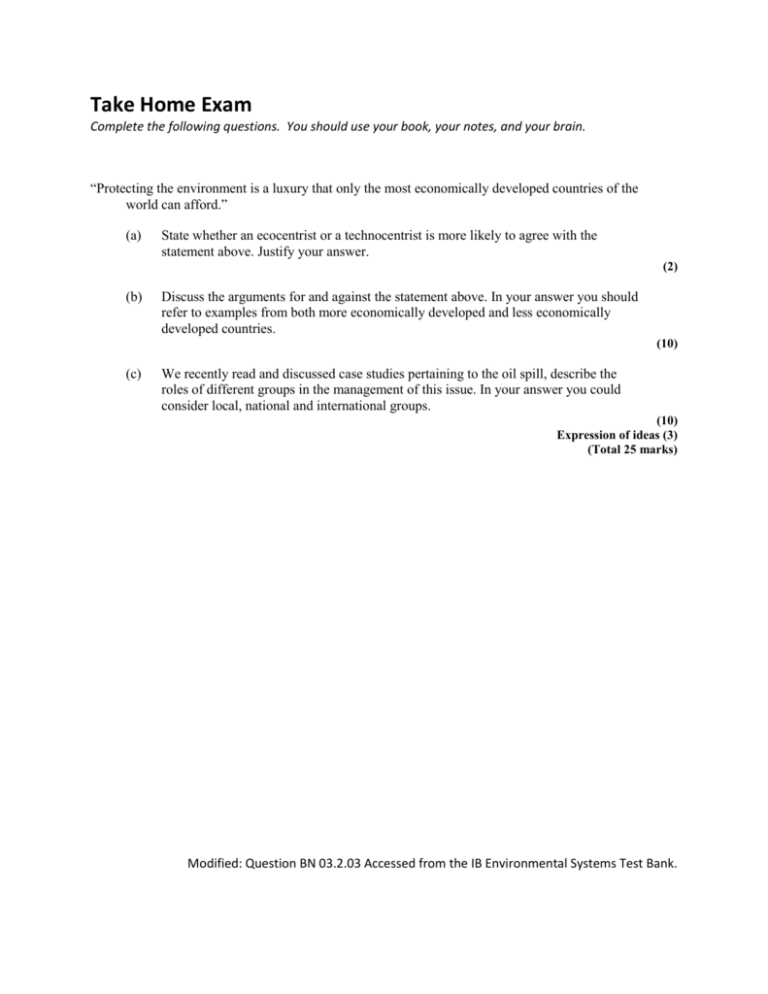
Take Home Exam Complete the following questions. You should use your book, your notes, and your brain. “Protecting the environment is a luxury that only the most economically developed countries of the world can afford.” (a) State whether an ecocentrist or a technocentrist is more likely to agree with the statement above. Justify your answer. (2) (b) Discuss the arguments for and against the statement above. In your answer you should refer to examples from both more economically developed and less economically developed countries. (10) (c) We recently read and discussed case studies pertaining to the oil spill, describe the roles of different groups in the management of this issue. In your answer you could consider local, national and international groups. (10) Expression of ideas (3) (Total 25 marks) Modified: Question BN 03.2.03 Accessed from the IB Environmental Systems Test Bank. Mark Scheme – Modified from IB ESS Test Bank (a) technocentrist because they tend to argue that economic development should precede environmental protection; and argue that society can find solutions for environmental problems through technology which comes when the economy is strong; would point to “success” stories like Canada and Scandinavia who have good environmental records and are economically developed;2 max (b) Arguments in favour of the statement: costly to change technology to more environmentally sustainable forms e.g. new power stations or investment in renewable technologies such as solar; often LEDCs rely on weak pollution laws to attract multinationals to locate there; so if they set environmental controls they will lose jobs and income vital for development; rights to emit CO2 for example can be bought and sold (richer countries can afford to buy the right to emit more CO2) which has implications for industrial development; often countries with best record of environmental protection are the most developed economically e.g. Scandinavia; people in poverty will often be forced to act with short-term perspective e.g. unsustainable use of forests in order to survive; it is not fair to expect LEDCs to protect the environment, as richer countries didn’t when they were going through their industrial revolutions; Arguments against: some of the most economically developed countries have huge ecological footprints and are very wasteful e.g. US, UK, Japan; unsustainable use of the environment will only bring short-term economic growth not long-term economic growth; often the most sensible users of the environment are people who are considered “undeveloped economically”; e.g. indigenous tribes in Amazonia/street kids recycling waste; people in poverty are often more intimately dependent on their environment – vital to protect it to help them; surely we can and should learn from the mistakes made by richer countries?; (very anthropocentric view) what about the rights of other living species to be unmolested?; environmental damage will have a knock-on effect on human societies that cannot wait until everyone has developed before we address it e.g. loss of species diversity once gone its gone; environment is the source of our resources for development so it is vital that the two go hand in hand – sustainable development; (c) 10 max Students should be able to name specific groups e.g. actual NGOs and international bodies rather than simply identify broad groups such as “local people” and “charities”. Students should describe each role in management of a spill Students should describe the importance of each role and response. Students should mention social, political, environmental, and economic issues related to the problem of managing the spill. 10 max Expression of ideas [3 max] [25] Modified: Mark Scheme - Question BN 03.2.03 Accessed from the IB Environmental Systems Test Bank.
